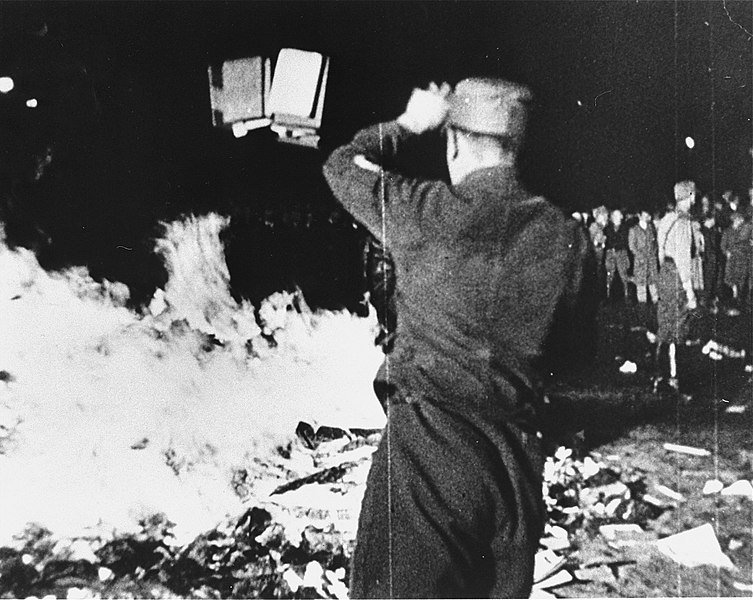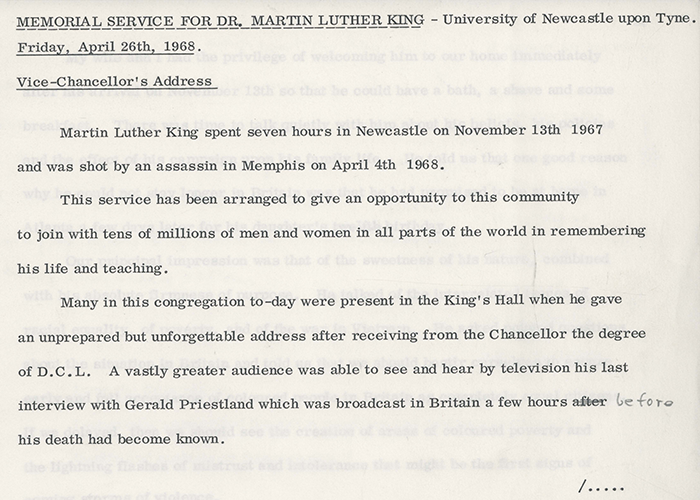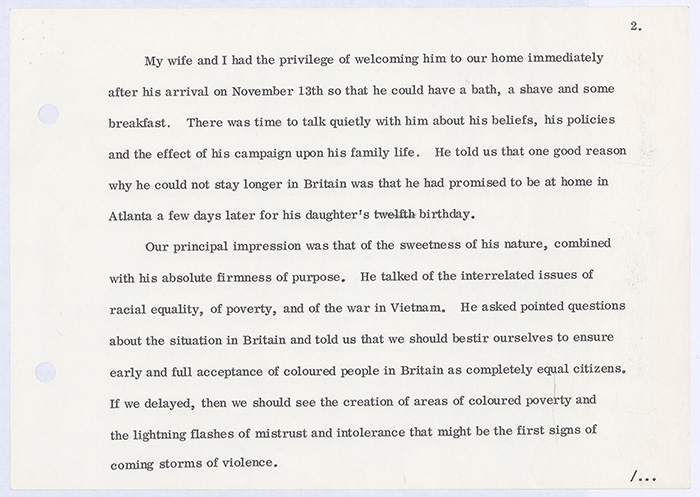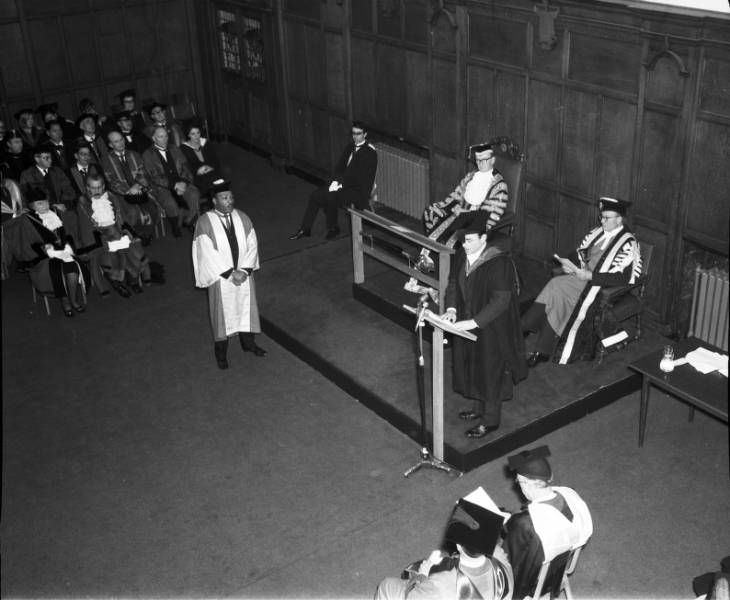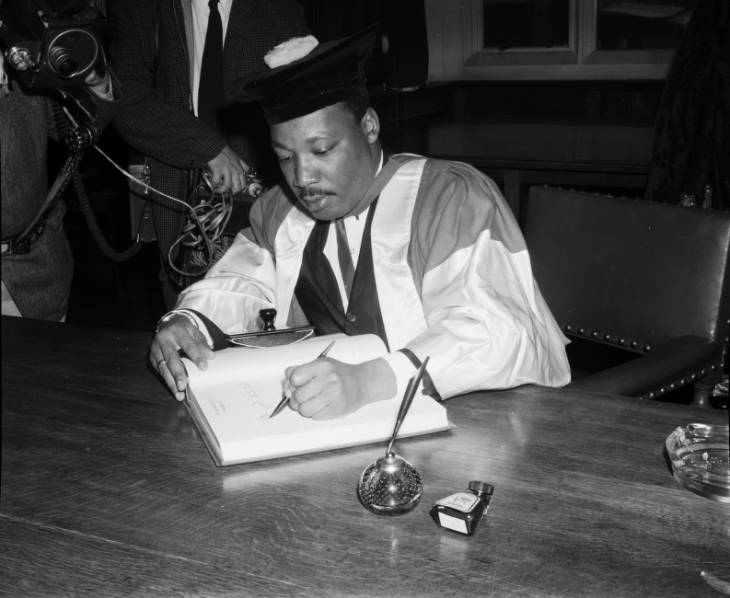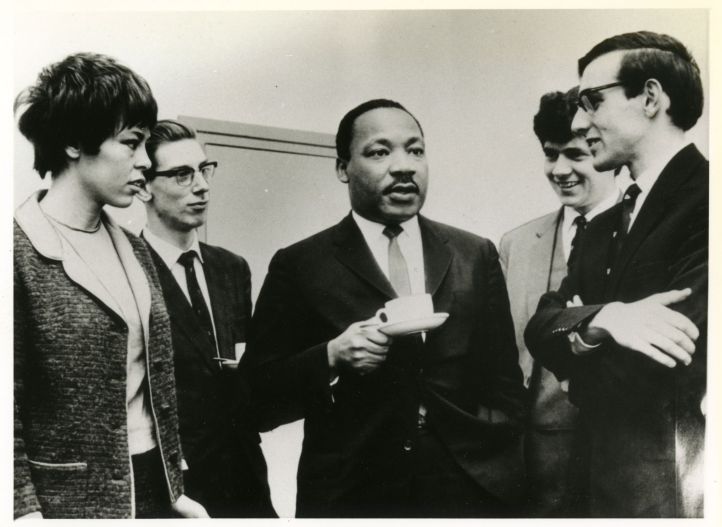Newcastle University Library’s Special Collections and Archives include several collections which contain materials with relevance to race equality issues. These are highlighted below, together with contextual resources such as blogposts and online exhibitions.
Collections
Jack Mapanje Archive
Jack Mapanje was born in Malawi in 1944, growing up in Kadango village in the Mangochi district.
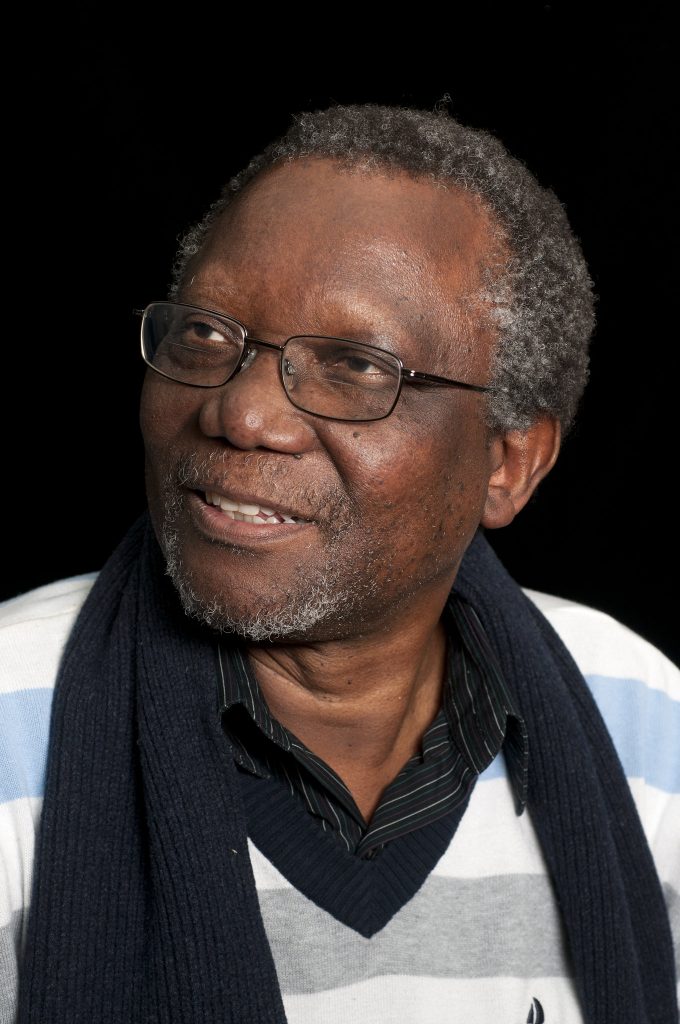
He first started to write poetry from despair at the political situation in Malawi; his first collection, Of Chameleons and Gods, was published in the UK in 1981 by Heinemann. The collection was critically acclaimed around the world, but withdrawn from circulation in Malawi in June 1985 by the government of dictator Hastings Banda. In September 1987, Jack was arrested and detained without charge or trial in Mikuyu Prison in Malawi. During his imprisonment, Of Chameleons and Gods won the Rotterdam Poetry International Award in 1988, and Jack was subsequently also awarded the PEN/Barbara Goldsmith Freedom to Write Award in 1990, recognising his fight for freedom of expression. Despite an international campaign by numerous writers, linguists, and human rights activists, including Harold Pinter, Wole Soyinka, Susan Sontag, and Noam Chomsky amongst others, Jack was not released until May 1991, and was given no explanation of his detention. During his time in prison, he wrote his second collection of poetry, The Chattering Wagtails of Mikuyu Prison (1993), and much of his third, Skipping without Ropes (1998).
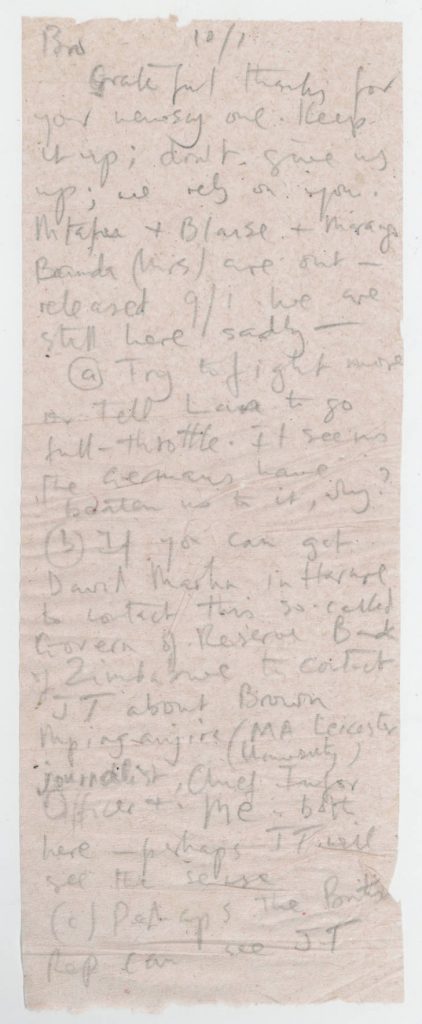
After leaving Malawi with his wife and children, Jack settled in Britain, where he has lived ever since, and has held numerous prestigious posts in universities, the first of these being a fellowship at the University of York in 1992. He was later an Honorary Visiting Professional Fellow in the School of English at the University of Leeds, where he taught a degree course between 1993 and 1996, and edited the collection Gathering Seaweed: African Prison Writing (2002) based on this course. Jack held a Royal Literary Fund Fellowship at Leeds Trinity University from 1999–2001, and has since held a post as Senior Lecturer in Creative Writing and Literatures of Incarceration at Newcastle University. Most recently, he was awarded an honorary doctorate from the University of Bedfordshire in 2015 and has held a Visiting Professorship post in the Faculty of Arts at York St John University.
In the Mapanje (Jack) Archive we hold material relating to his poetic works, items relating to his academic career in both Malawi and the UK, and perhaps most interestingly, correspondence written during and after his time held as prisoner of conscience.
You can find out more about his life and career in the blogpost ‘Jack Mapanje – poet and prisoner of conscience‘.
Anne Walmsley Archive
A specialist in Caribbean art and literature, Anne Walmsley is a British editor, scholar, critic and author. Anne started her career in the late 1950s when she worked as a secretary for Faber and Faber.

Anne Walmsley participated in the Caribbean Artists Movement (CAM), founded in 1966 by Kamau Braithwaite, John La Rose and Andrew Salkey. In 1985 she was awarded a Leverhulme Fellowship to research CAM and in 1992 she was awarded a Ph.D. from the University of Kent for her thesis on this, which was also published as a book entitled The Caribbean Artists Movement: A Literary and Cultural History, 1966-1971.
Anne Walmsley has contributed to a range of journals, literary magazines, exhibition catalogues and anthologies. The Walmsley (Anne) Archive holds a range of material including letters and reports from her time at Longman’s, her scrapbook from teaching at Westwood, research on CAM, and research on a range of Caribbean artists.
Highlights from the collection include:
Several titles published by Margaret Busby OBE, Britain’s youngest & first black female book publisher. Titles include, And Still I Rise (2006) and CLR James’s 80th birthday lectures (1984).
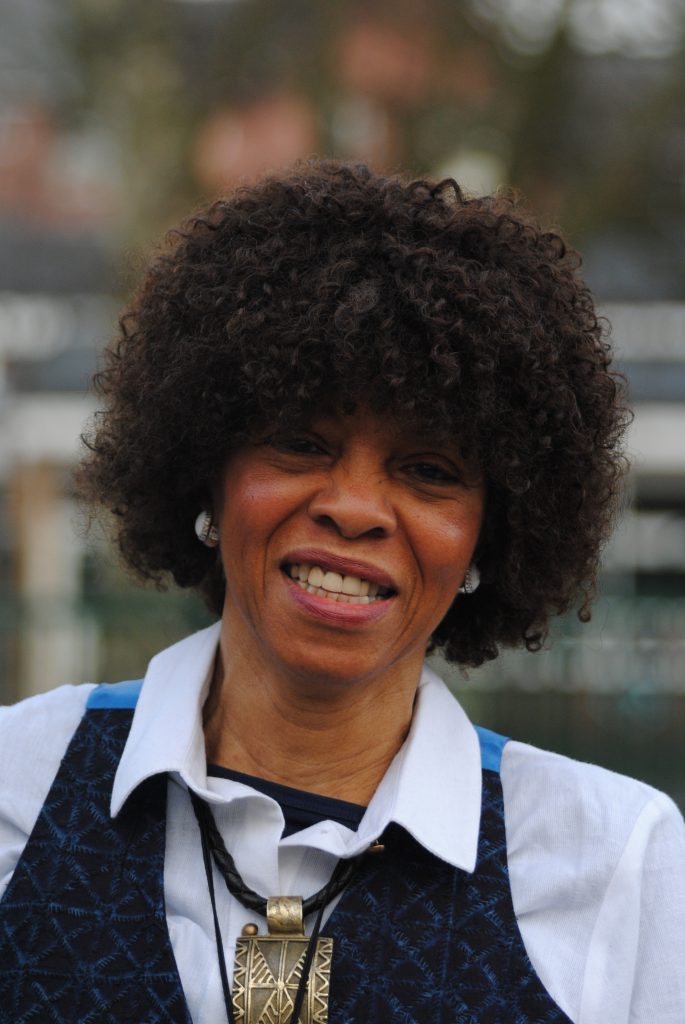
The critically acclaimed debut novel, In the Castle of My Skin (1953), the critically acclaimed debut novel of Bajan novelist, essayist and poet George Lamming (b. 1927).
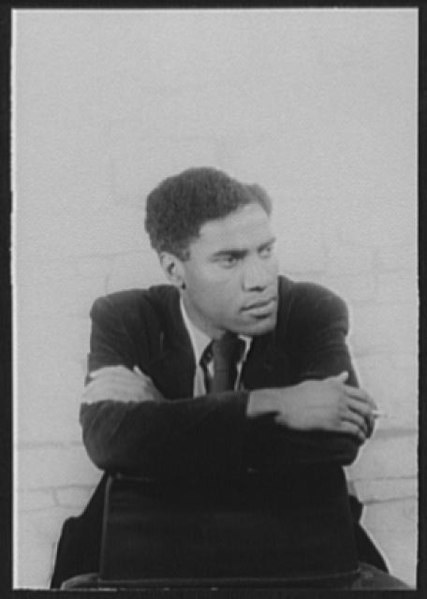
Bloodaxe Books Archive
The Bloodaxe Books archive is considered one of the most exciting archives for contemporary poetry that exists. The material in the collection includes 592 boxes of original typescripts, editorial work, correspondence and examples of marketing, business and financial records dating from the 1970’s to the present day. These records represent authors and books that have won virtually every major literary award given to poetry, including the T.S. Eliot Prize, Pulitzer Prize and Nobel Prize. Bloodaxe is also known for its work with translated collections and American poetry, and have published responsively to cultural change in Britain, publishing some of the finest writers in the British-Caribbean and South-Asian diaspora. Another significant achievement is that Bloodaxe publish more female writers than any other British poetry publisher, at a 50:50 male:female ratio. The company has opened up poetry to thousands of new readers and the material held in the archive demonstrates how Bloodaxe Books has been able to achieve this.
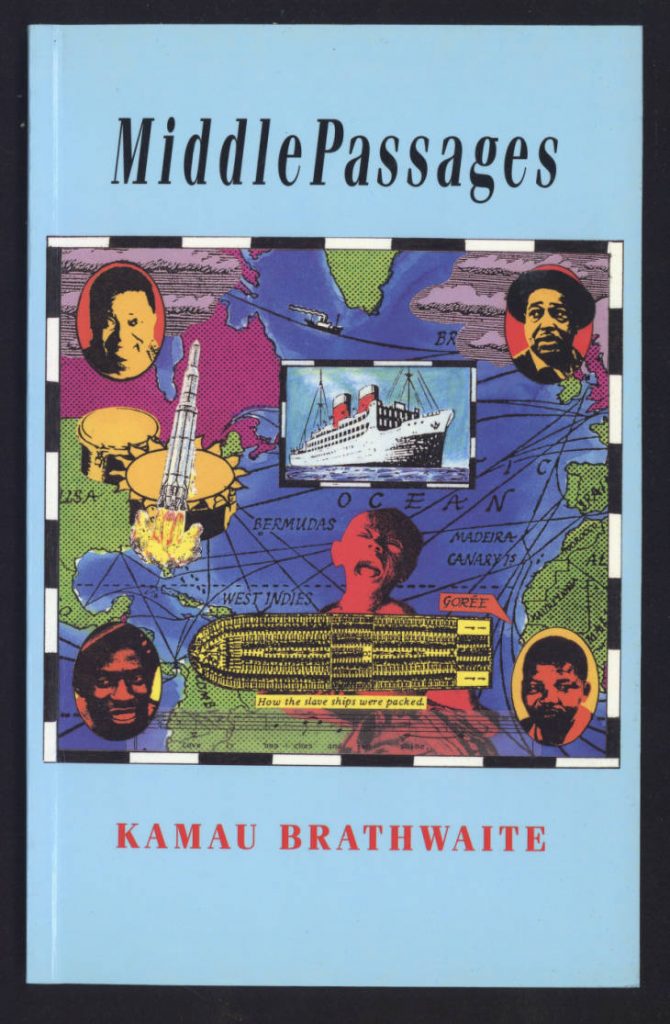
Bloodaxe Books Collection
The Bloodaxe Books Collection consists of poetry, prose, translations and critical work published by the company since its inception in 1978.
Want to find out more about some of the poets that Bloodaxe Books represents? Check out ‘Contemporary Poetry Collections: poets and their archives‘ on the blog.
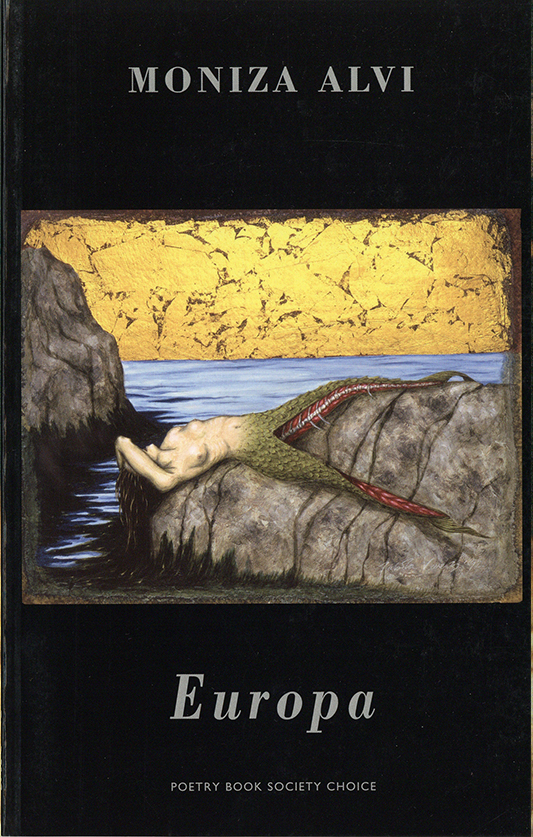
Joseph Cowen Tracts
The Cowen (Joseph) Tracts are almost two thousand pamphlets which were formerly owned by local (radical) M.P., Joseph Cowen (1829-1900). The tracts date mostly from the mid- to late-Nineteenth Century and reflect Cowen’s interest in the social, educational, political and economic issues of the day.
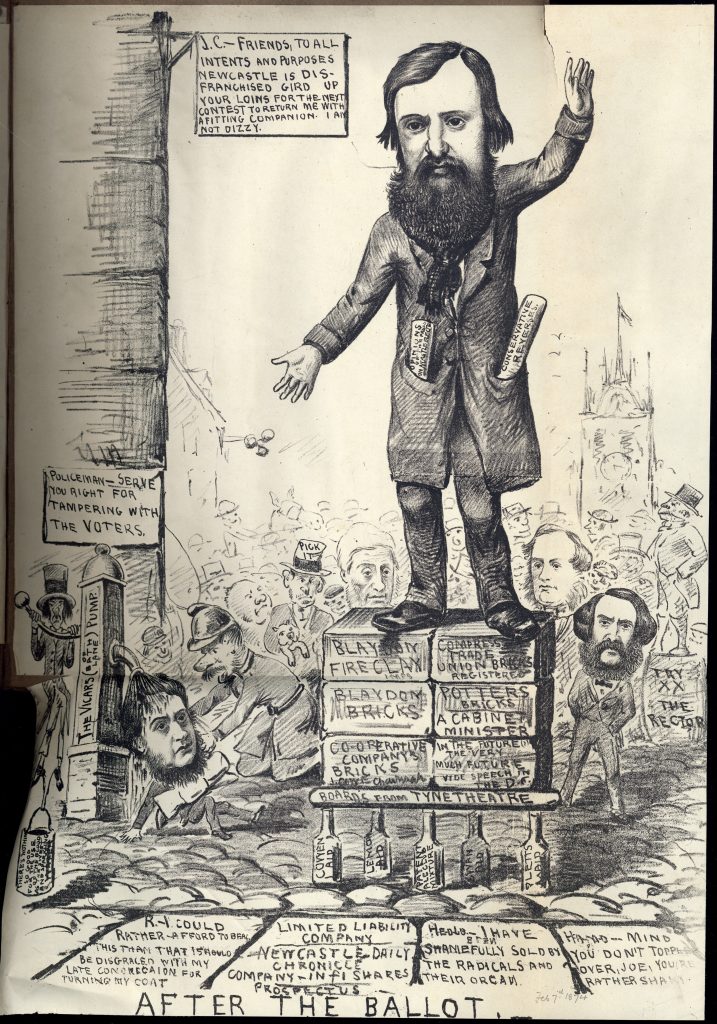
Included in the pamphlets are subjects on abolition and the slave trade, including material relating to Frederick Douglass. Douglass was born into slavery c. 1818 on a plantation in Talbot County, Maryland, USA. He became one of the most famous intellectuals of his time. He advised Presidents and lectured to thousands on a range of causes, including women’s rights and Irish Home Rule. On 3 September 1838, Douglass escaped from slavery in Baltimore. He disguised himself as a sailor and headed north, travelling by train and boat, first to Philadelphia, then on to New York. Find out more about Frederick Douglass and Newcastle on the University’s website. You can find material from the Cowen Tracts, relating to Douglass on the library catalogue.
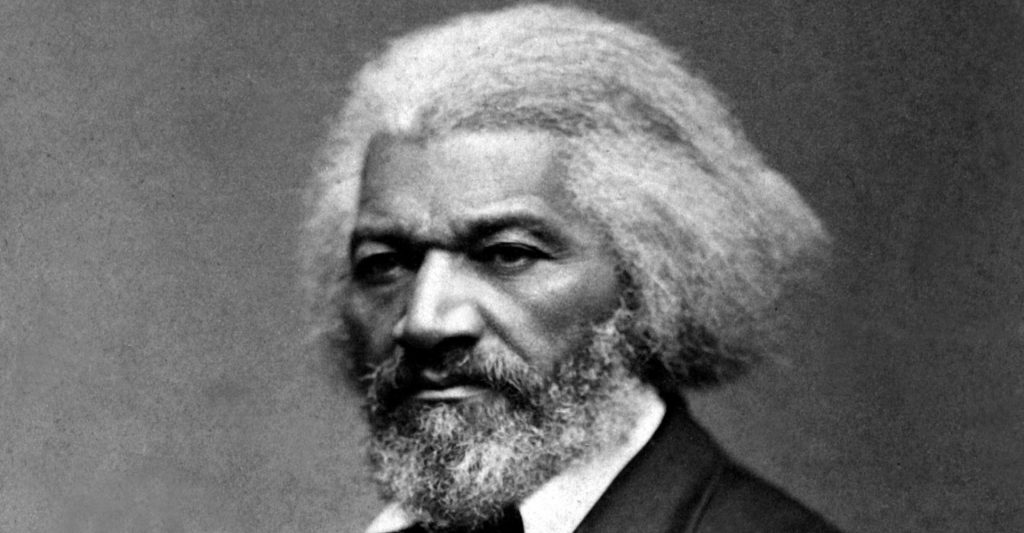
Pamphlets were an effective form of public debate because they could be circulated to a wider audience than books and authors could remain anonymous. Other subjects include discussions around Irish politics, foreign policy, women’s rights, religion, education and public health and include such titles as The Union programme for 1880: constructive, not destructive, Irish legislation [1879?], Are women fit for politics?: are politics fit for women [185-] and The education of the agricultural labourer: a paper read before the Morpeth Chamber of Agriculture, on Wednesday, Feb. 2, 1870 by M.W. Ridley (1870).
2nd Earl Grey Tracts
The Grey (2nd Earl) Tracts reflect the interests of their former owner, the 2nd Earl Grey (1764-1845) whose Whig government was responsible for the 1832 Reform Act, 1833 Factory Act and the 1834 Poor Law Amendment Act.
The pamphlets cover a broad range of historical, social and economic subjects including colonial policy, public finance and banking, the Corn Laws and agriculture, poor relief, slavery, Catholicism, Ireland and the Greek Revolution.
Digital Resources and Blog Posts
Martin Luther King at Newcastle University
A digital exhibition tells the story of the civil rights campaigner Dr Martin Luther King Jr., receiving an honorary degree at Newcastle University in November 1967 using original photographs and documents from the University Archives.
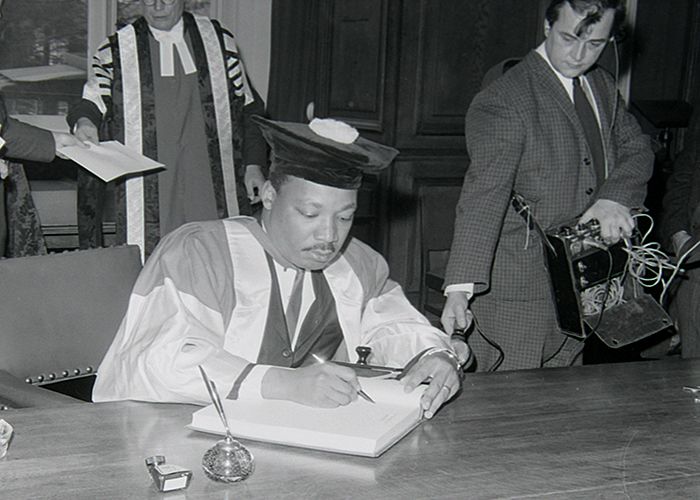
Dr Martin Luther King Memorial Service
Dr Martin Luther was assassinated shortly after 6pm on 4th April 1968, King was short dead in Memphis, Tennessee. He was just 39 years old. This is a blog post on the memorial service for Dr Martin Luther King, held at St. Thomas’ Church, Haymarket in Newcastle, 1968.
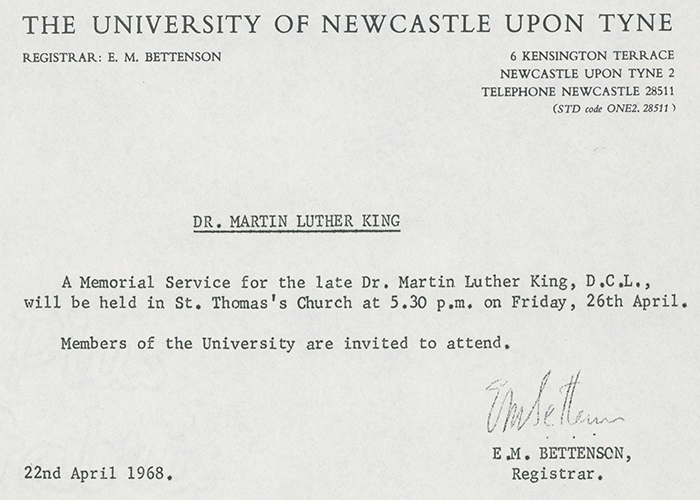
Books We Forgot to Remember: the radical tradition in British children’s literature of the early twentieth century
A blog post from Newcastle University students about the radical tradition in British children’s literature of the early twentieth century. This includes the includes the book, Blue Peter, which was written to tell a tale of marginalised minorities at the time of its production during the World War II.
